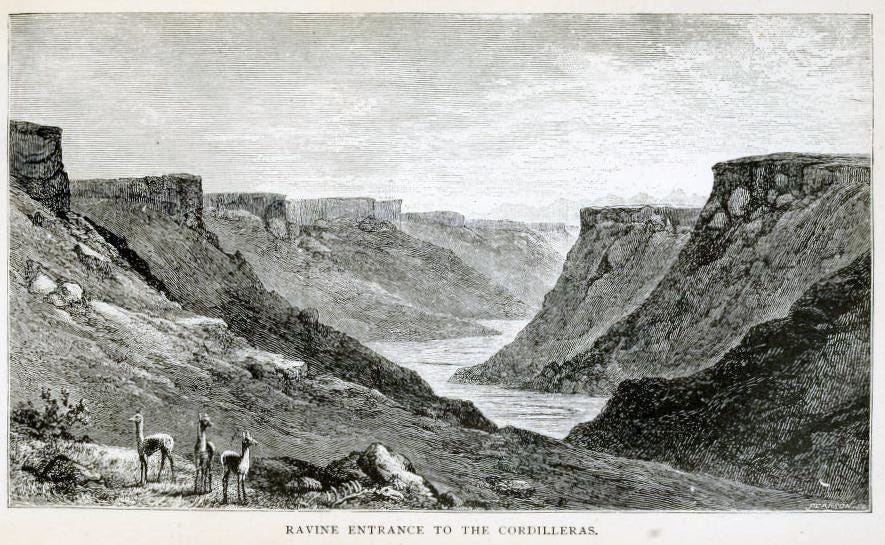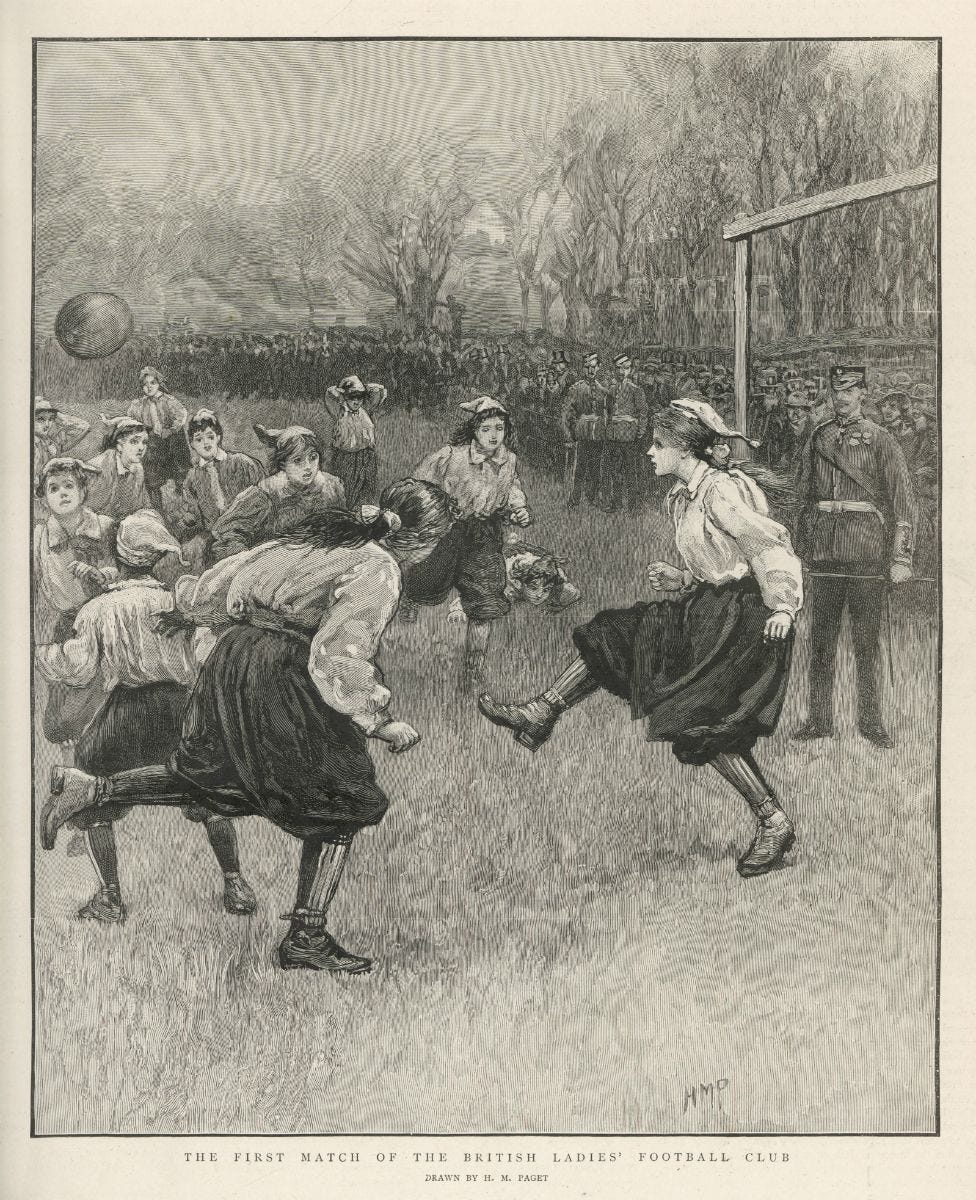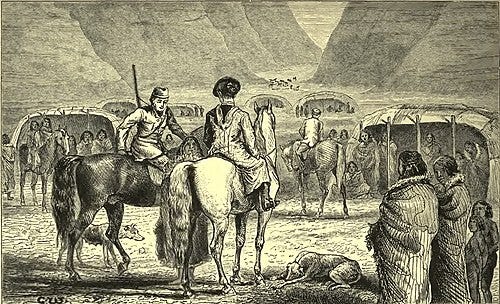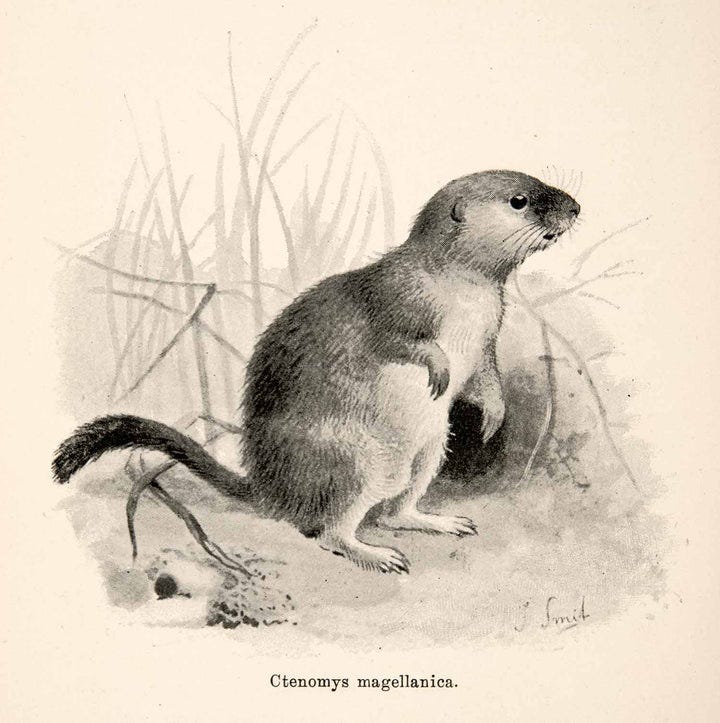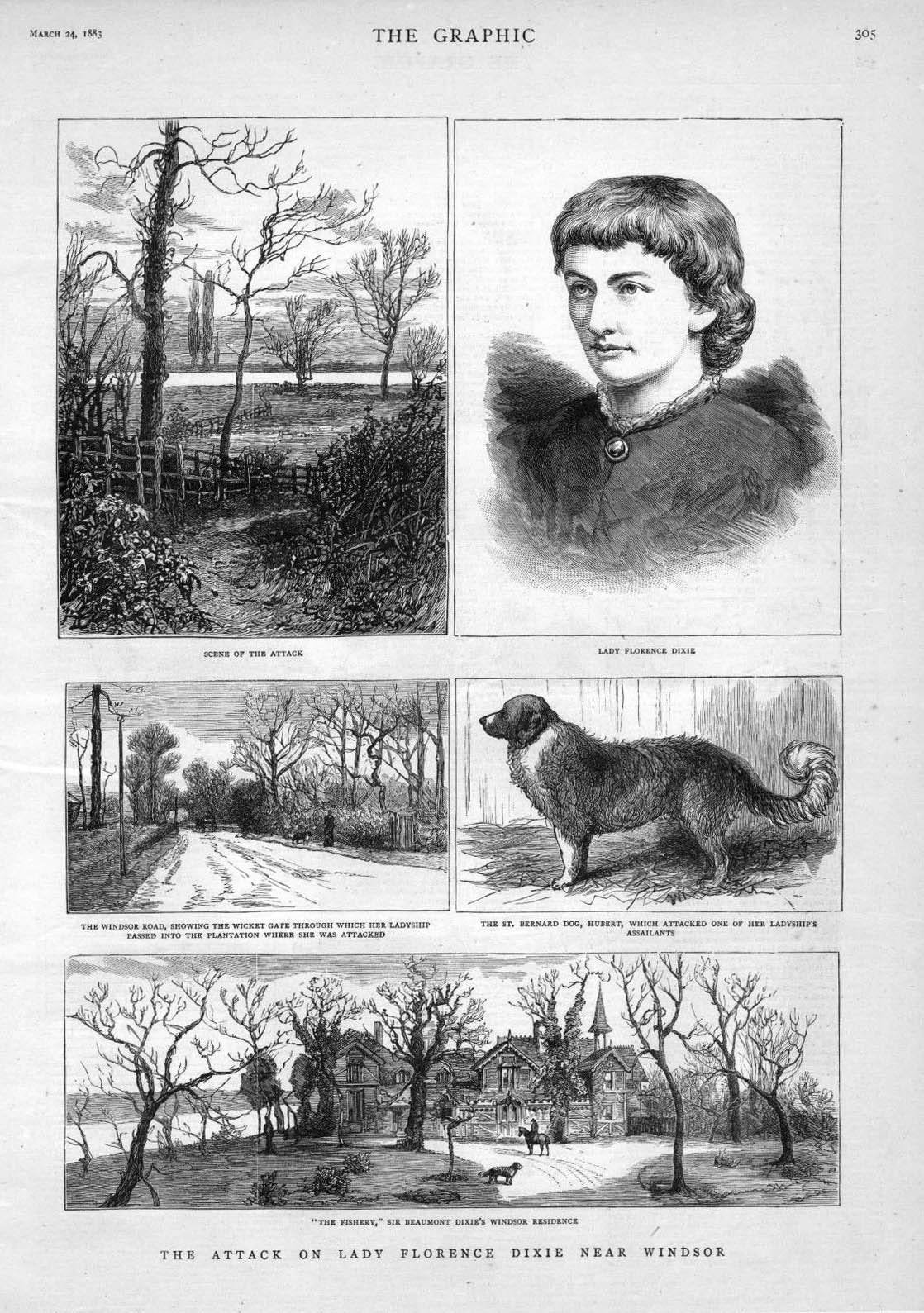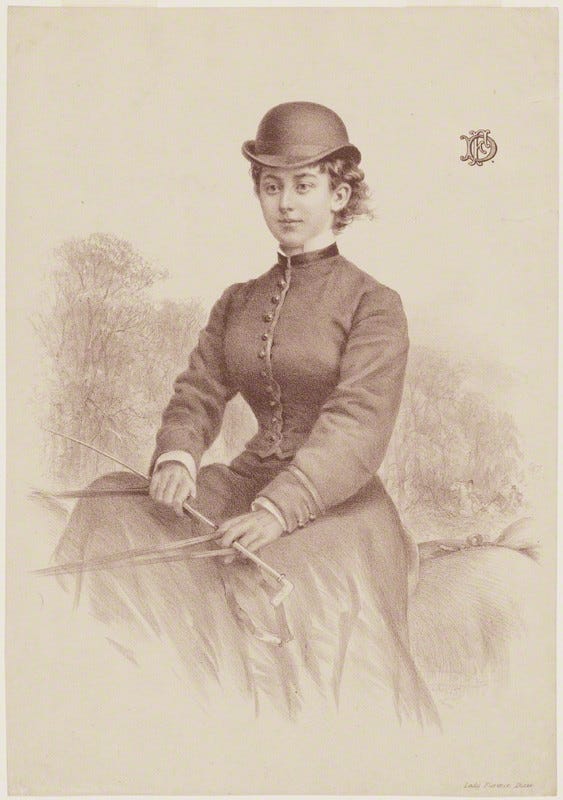
In a flash, the jaguar was on top of her. There was a flurry of muslin and spotted fur as Florence scrambled to escape its grasp. As soon as she found her footing, she bolted up the nearest tree as fast as she could manage while maintaining her grip on her gun, bloomers blowing in the breeze. Sweat began to collect under her mop of curly brown, bobbed hair.
But tree climbing was one of the jaguar’s specialties. Before Florence had time to consider her next move, the big cat scampered up the branches after her. All she could do was aim and shoot.
The mother jaguar had only been trying to protect her cub. Florence felt immeasurable guilt for leaving a young creature motherless, so she intervened on its behalf when the local cowboys moved in to bag it as well. So taken was Florence with the cub that when her Patagonia adventure was done, she took him home with her to London.
She named him Affums and he followed her around like a good little house cat. Once he was grown, he required more suitable surroundings. After he attacked several deer in Windsor Great Park, he was sent to live at the London Zoo.
Lady Florence Dixie is known for being instrumental to the founding of women’s association football (soccer) in the UK. Despite medical professionals’ impassioned pleas for women to be banned from the sport, Dixie helped birth the British Ladies Football Club in 1895.
“There is no reason why football should not be played by women, and played well too,” she quipped in the Pall Mall Gazette in February 1895. She served as its patron and first club president of the team, dubbed the Honeyballers.
But this was merely the crowning jewel of Florence's brief, wildly unconventional life. Born in Scotland in 1855, Florence Caroline Douglas rewrote the rulebook on what women could do and be. She was wife, mother, and aristocrat, yes, but also political journalist, international war correspondent, author of feminist utopian fiction and travel books, international adventurer, sportswoman, naturalist, ardent suffragist, active member of the Rational Dress movement, and big game hunter who later publicly condemned blood sports.
Instead of a life of leisure, she chose to use her literary talents to support the causes of women's and animals rights, and of the oppressed peoples in South Africa and Ireland. Fearless and opinionated, Florence was a woman of unique vision who crafted a life for herself few women would have imagined possible at the time.
In childhood, she was particularly close with her twin brother James. She joined her brothers in all of their physical activities, from swimming and riding to fishing and hunting. She rode astride instead of sidesaddle. She wore her hair short and was a keen billiards player. She refused to wear proper fashions, even when she was presented to Queen Victoria. She is often described as a tomboy because she refused to fully conform to any of society’s expectations of women. She firmly believed women deserved all the same rights as men.
At the age of nineteen, Florence married Sir Alexander Beaumont Churchill Dixie, known as “Sir A.B.C.D.” At 6’2'' tall Beau towered over Florence’s 5’ frame. Still, she wore the trousers in the relationship, reportedly ruling her husband “with a rod of iron.” They were known as “Sir Always and Lady Sometimes Tipsy.” Their marriage was relatively happy, but Beau’s drinking and gambling lost them his ancestral home in Leicestershire. The couple moved back to her homeland of Scotland, but maintained their London townhouse in the fashionable Mayfair district.
Florence disliked the expectation that she have children, but after fulfilling her wifely duty of providing a male heir she had little interest in parenting. “It is all very well to declare that it is a woman’s business to bear children, to bring them up, to attend to household matters and leave the rest to men,” Florence later wrote. “That such a definition is clearly mans it is not difficult to see, for no woman would ever have voluntarily condemned herself to a life of such inert and ambitionless duties as these.”
She fervently believed most women would prefer to live a life outside those constraints. Shortly after the birth of their first son in 1876, Florence published her first novel, Abel Avenged: a Dramatic Tragedy.
Two months after their second son was born in 1878, Florence and Beau left their aristocratic life and their children behind and were off to Patagonia for six months. Joining them were Florence’s twin brother James and older brother John. She was the only woman. (As an aside, Oscar Wilde sued Florence’s brother John for accusing him of being a homosexual and having an affair with his son Alfred. Wilde lost the case, but the public ordeal led to his later imprisonment.)
She recounted her adventures in the incredibly popular travelogue Across Patagonia (1880), which remains in publication to this day. In it, Florence positions herself as the expedition hero, regaling readers with tales of times she outsmarts or outlasts the men in her party. You’d hardly know the men were even there; she never even once mentions her husband by name.
Back home in Scotland, she wrote to Charles Darwin to correct him on some assertions he’s made about Patagonia’s wildlife, namely that the tuco-tuco rarely ventured above ground. She later sent him a copy of Across Patagonia.
Letter from Dixie to Darwin in 1880:
October 29th. Friday.
Dear Sir.—
Whilst reading the other day your very interesting account of “A Naturalist’s Voyage round the world” I came across a passage descriptive at Maldonado of the subterranean habits of the tucotuco in which you express the belief that this animal never comes to the surface of the ground. I am sure it will be interesting to you to know that tho’ this may be the usual habits of the tucutuco that there are exceptions. In 1879, I spent 6 months on the Pampas and in the Cordillera Mountains of Southern Patagonia and during my wanderings over the plains I have had occasion to notice in places tenanted by the tucotuco, as many as five or six of these little animals at a time outside their burrows. This was on moonlight nights, and I could not possibly be mistaken as they would frequently come within a yard of the spot on which I was lying. On two other occasions I have seen the tucotuco in broad daylight come out of its burrow and shuffle awkwardly along some 20 or 30 yards ere it took refuge in another of the hundreds of holes with which the ground appeared undermined. On one of these occasions an Indian who was sitting near threw an unfinished stone ball of a bolas which he was fashioning at the animal and killed it. A dog immediately carried the body off so I was unable to examine it and see whether its eyes appeared blind or not. The other one which I caught could see well enough & when I let it go shuffled quickly away. I feel sure you will forgive me writing what I have done but I felt that what I personally saw wld. be interesting to prove that on some occasions the tucutuco does come to the surface of the ground.
Trusting you will forgive the seeming presumption on my part I beg to remain very faithfully yours.
Florence Dixie
In 1881, Florence was appointed field correspondent for the London Morning Post to cover the First Boer War and Anglo-Zulu War. She and her husband headed to South Africa. She interviewed Zulu king Cetshwayo kaMpande while he was a prisoner of the British. Her reports, followed by her books A Defence of Zululand and Its King from the Blue Book and In the Land of Misfortune, were instrumental in helping Cetshwayo win a brief restoration of his throne.
In 1890, Florence published the futuristic feminist utopian fantasy, Gloriana, or the Revolution of 1900.
A superlative sportswoman, Florence played a key role in establishing women’s association football in the UK and was elected the first president of the British Ladies’ Football Club in 1895. Football served as the perfect vehicle for Florence to push her two passions of women’s rights and rational dress. Women who played soccer were supposed to do so in a corset and high-heeled boots. Florence’s team played in bloomers and the same style boots the men wore. By subverting dress codes, Florence illustrated the need for women to be free to don more practical, comfortable clothing in all facets of their life.
Her view of sport changed dramatically over the course of her life. Though she once avidly hunted game for food and sport, in her book The Horrors of Sport (1891) she condemned blood sports as cruel. She also went on to serve as vice president of the London Vegetarian Association.
Florence claims to have been the victim of kidnapping and an assassination attempt for voicing her criticisms of the Irish Land League and Fenians in newspaper and magazine columns.
In total, she published 18 books and dozens of articles. Florence’s days of adventuring came to a swift halt when she began experiencing debilitating arthritis at a relatively young age. By her early forties, she was confined to a wheelchair. She died of diphtheria at age 50. Hers was a brief, but extraordinary life. A commemorative plaque in her honor was hung in Bosworth Hall Hotel in 2018.
It’s important to situate Florence’s exploration and experiences within her wealth and imperialist white gaze. Her money allowed her to travel and do what she pleased with her time, her adventures were written as a European outsider. It’s also important to remember that all of the places white explorers throughout history have claimed to uncover or discover were already well known and occupied by indigenous peoples.
Read More:
“Lady Florence Dixie (1855-1905),” Humanist Heritage, UK.
“Overtaking Patriarchy: Corbett's and Dixie's Visions of Women,” by Duangrudi Suksang, Utopian Studies, vol. 4, no. 2, 1993.
“Role-play and Florence’s Dixie’s In the Land of Misfortune,” chapter 3 of Women and the Politics of Travel, 1870-1914 by Monica Anderson, Fairleigh Dickinson University Press, 2006.
More About Me:
Olivia Campbell is the author of the New York Times bestseller Women in White Coats: How the First Women Doctors Changed the World of Medicine. Her essays and journalism have appeared in The Atlantic, The Guardian, Washington Post, New York Magazine/The Cut, Smithsonian Magazine, Scientific American, HISTORY, Catapult, and Literary Hub, among others. She lives outside Philadelphia with her husband, three sons, and two cats.
Order her book here, or snag a *signed* hardback copy online at Newtown Bookshop.
Amazon Author page




